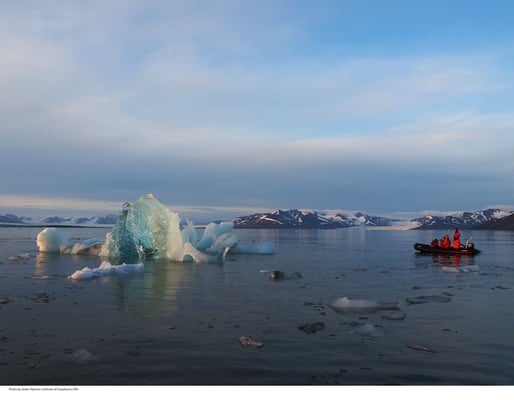Svalbard Science Conference 2025
Svalbard as an Arctic hotspot for climate change and international cooperation. Conference 28-29 October 2025 at Quality Hotel Expo, Fornebu (Oslo).

Conference program
We are looking forward to seeing you in October. Here are some of the highlights:
Tuesday 28 October: Plenary sessions
- Strategies for the next International Polar Year (IPY-5)
- Svalbard in a pan-Arctic context
- Managing risks in a changing Arctic
- Science-to-policy: Challenges and opportunities for Arctic Science
Wednesday 29 October: Parallel sessions
- New technologies and methods: how can they benefit polar science?
- Coast and fjords as systems in change
- Climate resilience of Arctic settlements and the footprint of anthropogenic activities
- Svalbard in transformation: from seasonal variability to long-term trends
Other sessions
- Art and science session. See all the participants.
- Poster session (Posters will be accessible throughout the whole conference.)
Side events
- Ny-Ålesund Research Station: 26-27th October: Kongsfjorden System Flagship Annual Meeting
- Ny-Ålesund Research Station: 27th October: Ny-Ålesund Atmosphere Flagship workshop
- Ny-Ålesund Research Station: 27th October: Ny-Ålesund Terrestrial Ecology Flagship meeting | Ny-Ålesund Research Station
- Early Career Researchers workshop: 27th October: Research in Svalbard: An APECS Workshop
- SIOS General Assembly Monday 27 October, 13:00–16:00 (closed meeting).
- Ny-Ålesund Research Station: 30-31st October: Ny-Ålesund Glaciology Flagship Workshop
- Climate Talks meets Art: October 27th. Register for the event.
Practical information
Conference registration fee
The registration fee for the conference is as follows:
- Full paying participant (all other than registered students): NOK 4 200 incl. VAT.
- Student discount: NOK 2 100 incl. VAT. To be given a student discount you must be registered as a student at a university, college or similar.
The registration fee covers participation to the conference both days, lunch both days and dinner on 28 October.
The registration fee will be fully refunded except for a licence fee of NOK 200 (full paying participants) / NOK 100 (students) if the registration is cancelled by 15 August. After 15 August the participation fee will not be refunded.
Hotel room bookings
We have booked a limited number of rooms for the conference participants at the Quality Hotel Expo. The cost per night is NOK 1 595. If you want to book a room at the conference hotel, please use the following link when you book your room: Quality Hotel™ Expo - New booking.
Accommodation bookings related to the conference should be made via a dedicated booking link above.
- If guests require accommodation beyond what is available through this link, they are welcome to contact the reception at q.expo@strawberry.no.
- For inquiries regarding group bookings of hotel rooms and/or conference facilities, please contact booking.expo@strawberry.no for a tailored offer. Please note that we cannot guarantee the same rates for new bookings.
The SSC Scientific Committee
The Scientific Committee of the conference consists of experts nominated by the SSF members. The committee evaluates submitted abstracts and advises on the scientific programme.
About the Svalbard Science Conference
The Svalbard Science Conference – the only conference dedicated to Svalbard research – is a bi-annual conference arranged by the Svalbard Science Forum and the Research Council of Norway. This year's theme, Svalbard as an Arctic hotspot for climate change and international cooperation, underscores the critical importance of Svalbard research in understanding and addressing global climate challenges.
The conference brings together researchers at all career stages, research managers, policymakers and other stakeholders of Svalbard research. The aim is to build and strengthen multi-generational, interdisciplinary and international collaboration. Over the course of the conference days, there will be sessions covering all important aspects of Svalbard research.
Natural science often involves complex data that can be difficult for non-experts to grasp. Art – whether visual, musical, literary, or performative – translates this information into forms that are more intuitive and emotionally compelling. Art has the power to evoke emotions; fear, joy, hope, urgency, or inspiration that data alone may not. This year’s conference therefore also includes an art-and-science session. We have invited artists Torben Snekkestad, Morten Qvenild, Anja Lauvdal, Julie Freeman, Esther Horvath, Georgia Rose Murray, Olivier Morin and Jessica MacMillian to contribute to the session.